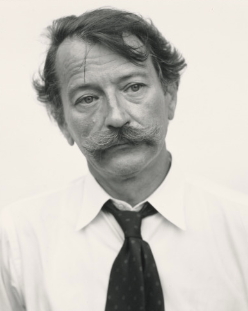A Quote by John B. S. Haldane
In fact, words are well adapted for description and the arousing of emotion, but for many kinds of precise thought other symbols are much better.
Related Quotes
I had studied Dadaism after the Second World War. What attracted me to this movement was the style its inventors used when not engaged in Dadaistic activities. It was clear, luminous, simple without being banal, precise without being narrow; it was a style adapted to the expression of thought as well as of emotion. I connected this style with the Dadaistic exercises themselves
Writing is.... being able to take something whole and fiercely alive that exists inside you in some unknowable combination of thought, feeling, physicality, and spirit, and to then store it like a genie in tense, tiny black symbols on a calm white page. If the wrong reader comes across the words, they will remain just words. But for the right readers, your vision blooms off the page and is absorbed into their minds like smoke, where it will re-form, whole and alive, fully adapted to its new environment.
Words are merely utterances: noises that stand for feelings, thoughts, and experience. They are symbols. Signs. Insignias. They are not Truth. They are not the real thing. In fact, you place so little value on experience that when what your experience of God differs from what you've heard of God, you automatically discard the experience and own the words, when it should be just the other way around.
There are so many different kinds of people in America, with so many different boiling points, that we don't know how to fight with each other. The set piece that shapes and contains quarrels in homogeneous countries does not exist here. The Frenchman is an expert on the precise gradations of espèce de and the Italian knows exactly when to introduce the subject of his other's grave, but no American can be sure how or when another will react, so we zap each other with friendliness to neutralize potentially dangerous situations.
Much later, when I understood what perfection was, I realized that to become a saint one must suffer a great deal, always seek what is best, and forget oneself. I understood that there were many kinds of of sanctity and that each soul was free to respond to the approaches of Our Lord and to do little or much for Him - in other words,to make a choice among the sacrifices He demands.





































